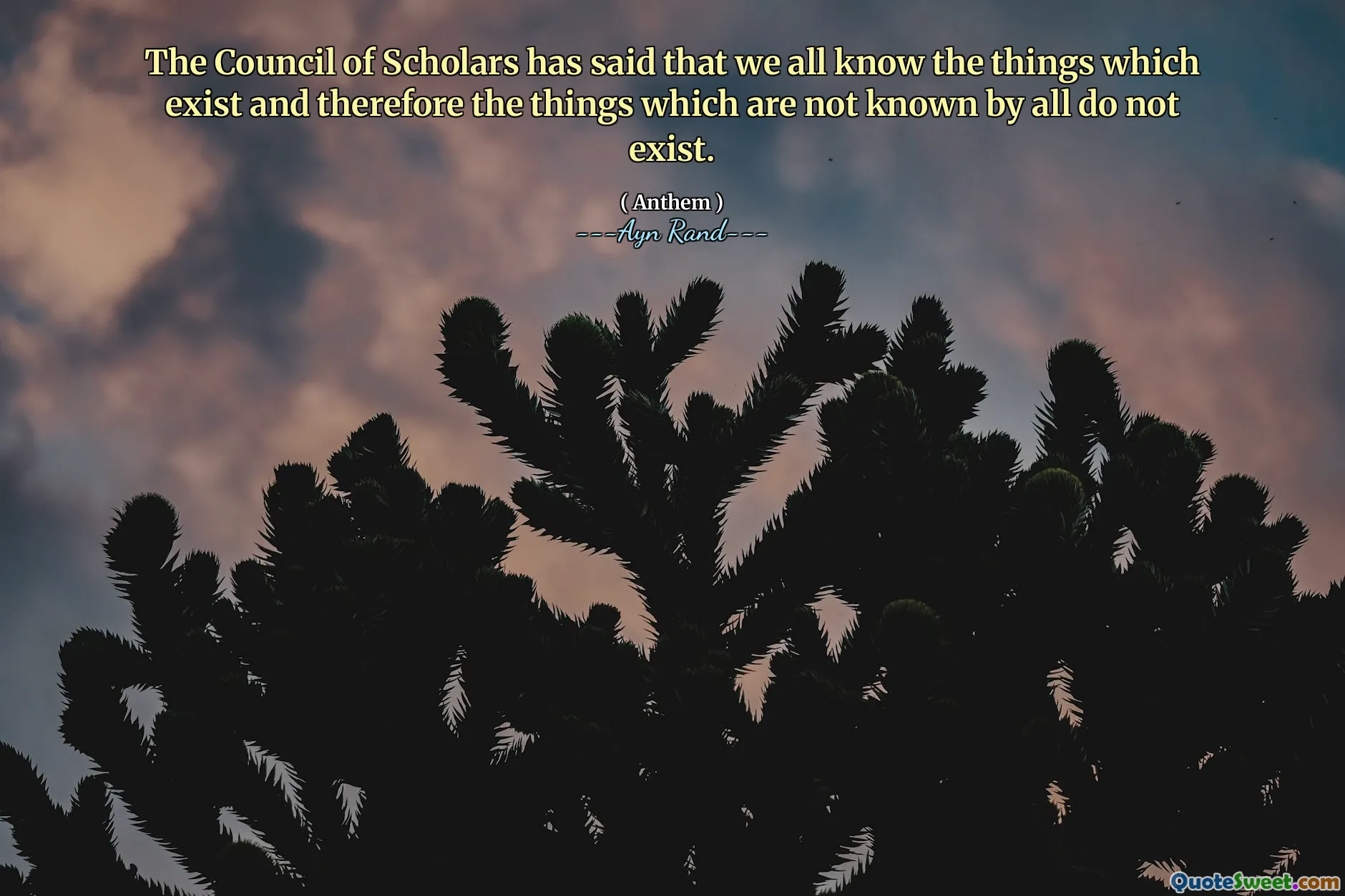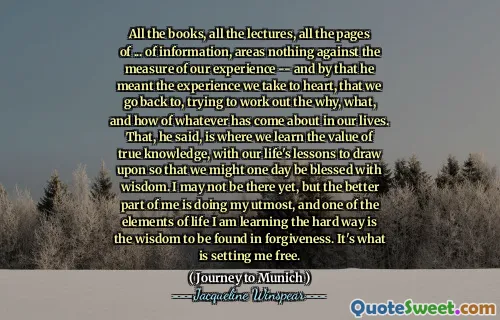
The Council of Scholars has said that we all know the things which exist and therefore the things which are not known by all do not exist.
This quote sparks an intriguing reflection on the nature of knowledge and existence within the realm of collective consensus. It suggests that what is universally acknowledged by a scholarly or authoritative body defines the boundaries of reality, implying that anything outside this shared understanding does not possess a recognized existence. This perspective highlights the power of consensus and intellectual authority in shaping our perception of reality—which can be both enlightening and limiting. On the one hand, such a viewpoint ensures that common understanding and accepted facts serve as a basis for societal functioning. On the other hand, it risks dismissing phenomena, ideas, or entities that are not yet accepted or understood by the majority, potentially stifling innovation, curiosity, and the advancement of knowledge. Philosophically, this raises essential questions about the nature of truth: Is something real simply because it is known? Or does reality also encompass the unknown and the unacknowledged? Ayn Rand, in her philosophical writings, often explores individual perception and the importance of objective reality beyond societal consensus, contrasting with the idea that collective knowledge is the definitive measure of existence. Furthermore, in scientific and philosophical progress, the boundaries of what is accepted continually expand as new discoveries emerge, challenging the notion that consensus defines reality definitively. While the quote underscores the influence of authoritative consensus, it serves as a reminder that human knowledge is provisional and subject to change. True understanding demands open inquiry beyond accepted dogmas, encouraging skepticism and the pursuit of new truths that may yet redefine what we perceive as real.






